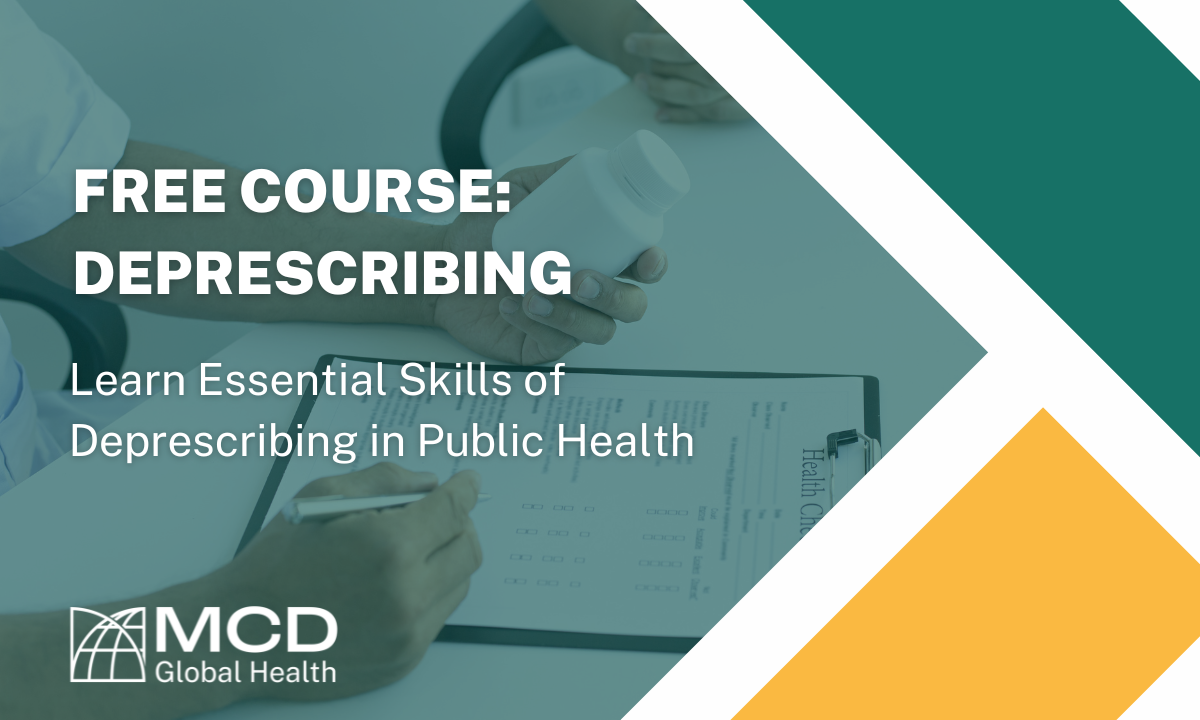When Less Is More: The Essential Skill of Deprescribing
June 16, 2025

Prescribing medications is a vital skill for providers; however, knowing when and how to deprescribe, safely reduce or stop medications that may no longer be beneficial, is just as important. Whether you're a clinician, nurse, or another health care professional, understanding the principles of deprescribing can help reduce harm, improve outcomes, and support more thoughtful, person-centered care.
The siloed nature of health care in the U.S. means that patients often visit different specialists who may prescribe different medications, calling for a need for clinicians to build essential skills in ongoing treatment and follow-up care. It is important for providers to understand the patient-centered approach to medication review, and that deprescribing is just as important as the initial prescribing itself.
"Deprescribing is just as important as prescribing — knowing when to stop or cut back on a medication helps make care safer, more effective, and person-centered,” said Michaela Fascione, co-creator of the course and a MCD program manager. “This course gives a solid overview of deprescribing basics, making it easier for health care providers in rural northern New England to build these essential skills."
In the free course Deprescribing: A Multipart Series, Sydney Springer, PharmD, MS, BCPS, BCGP, takes you through three different modules:
- Introduction to Deprescribing,
- Deprescribing in Dementia, and
- Having the Patient Conversation
After successful completion of this course, you’ll have better knowledge about identifying patients who would benefit from deprescribing and processes that can be implemented to promote deprescribing in your practice; identifying scenarios in which deprescribing would benefit a patient with dementia; and utilizing the FRAME approach for having conversations about deprescribing with patients and family.
To access this course, simply visit TelehealthClassroom.org and register for free. You’ll also have access to all other available modules.
About the presenter: Sydney is a board-certified geriatric pharmacist with over 10 years of experience in geriatric care and deprescribing. She received her PharmD from the University of Rhode Island College of Pharmacy and completed her post-graduate residency and fellowship at the University of Pittsburgh Medical Center and School of Pharmacy. She later relocated to Maine to work at the University of New England and now works for Oscar Health where she writes and reviews pharmacy and medical policy.
Continuing education units (CEU) and continuing medical education (CME)
This activity is jointly provided by The North Country Health Consortium and MCD Global Health.
Nursing: North Country Health Consortium/NNH AHEC is approved as a provider of nursing continuing professional development by the Northeast Multistate Division Education Unit, an accredited approver by the American Nurses Credentialing Center's Commission on Accreditation. This activity was approved for 2.0 Nursing Contact Hour(s) per session. Activity #604
Physicians: This activity has been planned and implemented in accordance with the accreditation requirements and policies of the Accreditation Council for Continuing Medical Education (ACCME) through the joint providership of the North Country Health Consortium/NNH AHEC and Medical Care Development. The North Country Health Consortium/NNH AHEC is accredited by the NH Medical Society to provide continuing medical education for physicians. The North Country Health Consortium/NNH AHEC designates this live activity for a maximum of 2.0 AMA PRA Category 1 Credit(s)™ per session. Physicians should claim only the credit commensurate with the extent of their participation in the activity.
For other professionals: 2.0 Professional Hour of Continuing Education.